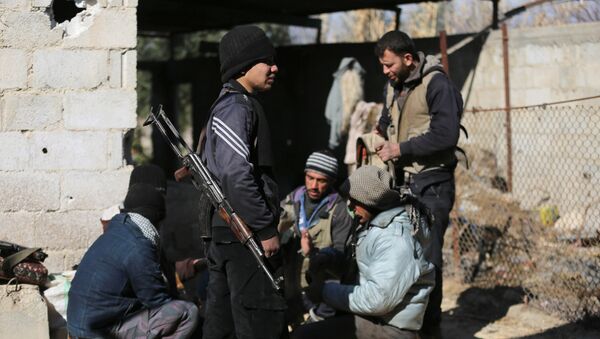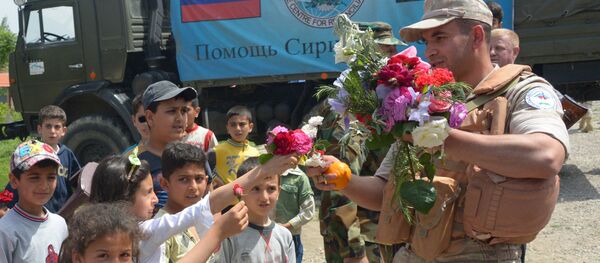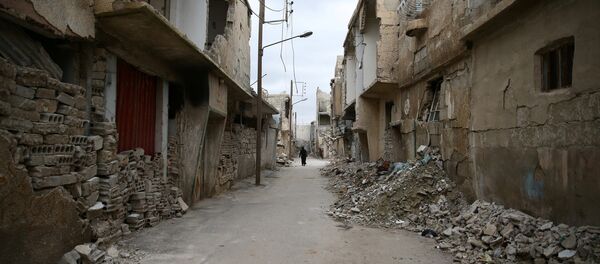While Russia has done everything in its power to enable a political agreement, US support for what it calls "moderate opposition" could present an obstacle to last week's ceasefire agreement in Astana, editor-in-chief of the Russian magazine "Arsenal of the Fatherland," Viktor Murakhovsky, told RIA Novosti.
"The crux of the issue is to implement a ceasefire across Syria, or at least most of it. Russia has done everything it can to contribute to this, simultaneously destroying radical terrorists, aiding the reconciliation process with guarantees and influencing the Syria government and its allies so that they also keep to such agreements," Murakhovsky said.
"At the same time, the number of armed opposition members who have been persuaded to leave the area where they were fighting has increased."
"If it is possible to resolve this issue [of a ceasefire] with safe zones, then the political process for creating a new parliament, for presidential elections, defining the constitution and so on, will begin to dawn," Murakhovsky said.
"We have not been able to get from the US a list of moderate opposition groups and the districts where they are located. Russia, the Syrian government and Syria's ally Iran refer to some of these groups as terrorist organizations, but the other side [the US] considers them to be moderate opposition."
The US has also signaled its willingness to arm anti-government forces. In December, US President Barack Obama eased restrictions on arms sales to Syrian rebels, allowing the current administration to send man-portable air defense systems (MANPADS) to the Syrian opposition.
Murakhovsky referred to the case of Jabhat-al-Nusra [al-Nusra Front], al-Qaeda's affiliate in Syria which claimed to shed ties with its sponsor and rebranded itself as "Jabhat Fateh al-Sham" in July 2016.
The jihadist group "changed its sign and walked into the moderate opposition straight away," Murakhovsky pointed out.
"There is no unity, even among the so-called moderate opposition, who go back and forth at each other day and night, shooting, killing, capturing hostages, luring people from one side to another, seizing different resources. They can't always agree among themselves," Murakhovsky concluded.
At a previous round of talks in Astana in February, representatives of Russia, Turkey and Iran discussed protocol on a ceasefire and also focused on separating moderate opposition units form terrorist groups on a map of Syria.
During talks in Astana on Thursday, Russia, Turkey and Iran signed a memorandum on the creation of four zones of de-escalation in Syria, which include the province of Idlib and seven other regions. According to the memorandum, any clashes between the government forces and opposition armed groups must stop within the zones.
On Friday, Russian Deputy Foreign Minister Mikhail Bogdanov said that Moscow expects the armed groups present at the Astana talks to comply with the agreement.
"The armed opposition is one of the two Syrian parties in these agreements. Of course they must comply," Bogdanov told reporters.
He said that Turkey, as one of three ceasefire guarantors, "assumed responsibility for compliance by the armed opposition with those agreements that were reached in Astana."
After the memorandum came into effect on Friday, a source close to the operations headquarters told Sputnik that it was generally adhered to.
"In general, the ceasefire is being adhered to. However, in some areas there have been local, unsubstantial clashes. It is impossible to solve everything in one day, but we hope that this [problem] will be eliminated," the source said on Saturday.





